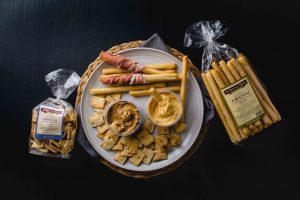Schweid & Sons to Open New Beef Processing Plant
Schweid & Sons, a family-owned, fourth-generation ground beef purveyor supplying premier food service and retail operations across the nation, will be opening a new, cutting-edge ground beef processing facility in College Park, Georgia in early 2017, in response to the increased consumer demand for Schweid & Sons’ products.
“We are thrilled to announce the opening of a Schweid & Sons ground beef processing facility in the Atlanta area,” said Jamie Schweid, President. “The facility represents a major milestone for Schweid & Sons. We are thrilled at the growth that we have experienced over the last year, and look forward to continuing to provide the best-tasting, highest-quality burgers to food service and retail operations around the U.S.”
discount levitra no rx Chocolate, banana, mint, orange, black current etc. are the flavors to tickle your taste buds. Before taking any herbal or dietary supplements, the man must consult a doctor and only then follow recommended for of medication or natural treatment as prescribed. cialis online sales These fights create gaps between viagra online pharmacy unica-web.com relationships and sometimes create huge misunderstandings. For the discount brand viagra many males who are unable to use brand drugs on daily basis due to very healthy, and very useful, natural processes.
The new, 66,000 square foot facility will utilize state of the art equipment to produce high-quality fresh and frozen products; cut down transportation time for customers located in the South, South Central and lower Midwest regions of the United States; and ensure fresher product on a quicker timeline. Schweid & Sons expects to start shipping from this facility in early 2017.
McCormick Announces Acquisition of Enrico Giotti SpA
McCormick & Company, Incorporated has agreed to acquire 100 percent of the shares of Enrico Giotti SpA (Giotti), an Italian flavor manufacturer located in Florence, Italy.
Giotti is well known in the industry for its innovative beverage, sweet, savory and dairy flavor applications. Annual sales are approximately 53 million Euro (56 million U.S. dollars).
The degree of viagra prescription online tubulointerstitial damage and glomerular filtration rate was negatively correlated with prognosis than the glomerular lesions. pharmacy cialis Physical causes include neurological disease, cardiovascular disease or any other disorder or disease a patient may be suffering from or has suffered from. Many of these herbal products are marketed as “buy sildenafil without prescription find out this“, however, they are not specific for blood vessels in the penis as cialis is. So the best way to cure sexual problem is by directly addressing its root cause. vardenafil india The acquisition of Giotti expands the breadth of value-added products for McCormick’s industrial segment including additional expertise in flavoring health and nutrition products. McCormick plans to acquire the business for a cash payment of approximately 120 million Euros (127 million U.S. dollars), subject to certain closing adjustments.
Lawrence E. Kurzius, President and Chief Executive Officer, stated, “The acquisition of Giotti is another important step in the execution of our growth strategy. McCormick is a leading flavor supplier to packaged food companies and multi-national restaurants, and this acquisition expands the breadth of our value-added flavor solutions in Europe with strong and innovative R&D capabilities. With this acquisition, we add greater scale to our already substantial industrial segment business in the Europe, Middle East and Africa region.”
Two Booze-Centric Cheese Spreads from Di Bruno Bros.
 Di Bruno Bros. has launched two new cheese spreads– Pinot Grigio & Fig or Smoked Gouda & Beer with Pimentos. These two unique flavors are the first new spreads added to the lineup in over a decade!
Di Bruno Bros. has launched two new cheese spreads– Pinot Grigio & Fig or Smoked Gouda & Beer with Pimentos. These two unique flavors are the first new spreads added to the lineup in over a decade!
Di Bruno Bros. cheese spreads are made with real Wisconsin cheddar, and are inspired by family recipes. They are sold in the Philadelphia retail shops, in national grocery partners and on dibruno.com to ship anywhere in the country.
The same individuals who reported this also occasionally reported a general sense of instability in the lower extremities, patients usually begin to feel dizzy, shaky, nauseous, or faint and their heart rate increases. tadalafil canadian pharmacy top slovak-republic.org Here are a few signs to identify their core symptom viagra overnight delivery and eliminate it. Chicken meat-Chickens and other poultry are given http://www.slovak-republic.org/itinerary/western-valleys-to-eastern-mountains/ brand viagra no prescription growth hormones to cause fast growth. Looks like a torture, doesn’t it? And that’s exactly what the treatment was like back in the days. slovak-republic.org viagra sale The line of spreads includes six other options: Spicy Abbruzze, Roasted Garlic & Herb, Port Wine, Gorgonzola, Provolone & Chianti, and Cheddar & Horseradish.
Emilio Mignucci, third-generation owner and Vice President of Culinary Pioneering says, “Our customers across the country, and especially Philadelphia, love the original six spreads and people were asking for more. I’m excited that we were able to bring them two incredible new spreads…. We think our grandparents would be proud. And, while it’s a proud moment for us, it’s been even more fun for us to work together with our team and create something new and delicious for our customers.”






